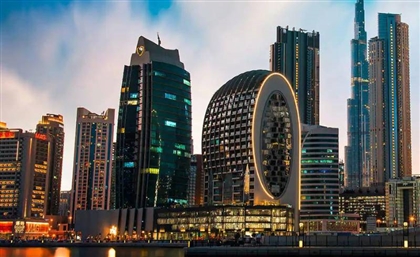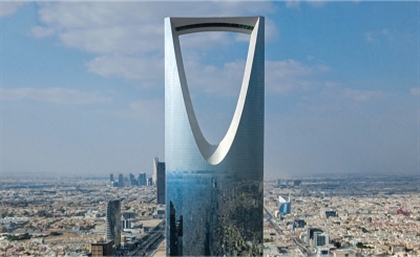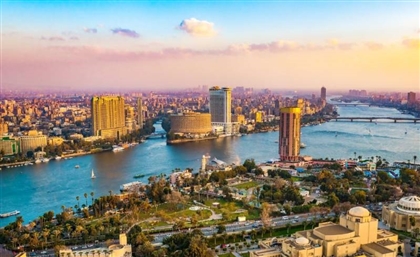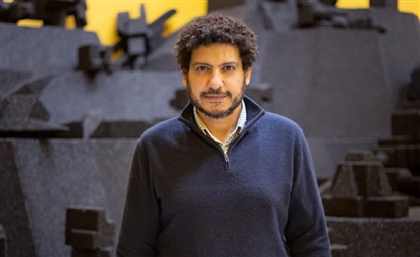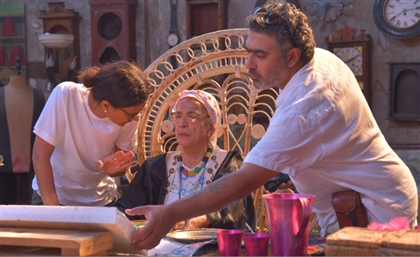Radical Economics: A Shift In Perspective
In this in-depth look at the world's economy, Seif Bibars argues that our current paradigm, which relies heavily on interest, is dysfunctional and detrimental to many, and proposes a radical new solution in order to remedy it that involves an overhaul of the entire economic system.
When I look at the world from the vantage point of a person who is not consumed by the troubles of everyday life, a person who is financially stable and doesn’t have to worry about things like where their next meal will come from or what will happen if they fall ill and don’t have enough money to buy medicine; when I’m spared the suffering of poverty and the anguish that the majority of people face on a daily basis, through no fault of their own other than that they were born into such circumstances; when I consider all these things, I thank God and count my blessings. I imagine that I’m not alone in this, and that most people do this from time to time and end up thanking God for being fortunate enough to have been born into a family that is well off, and to have parents who love them and are capable of giving them a proper education. Others feel that thanking God is not enough; some take the road of the activist or philanthropist, and others give back by doing volunteer work, donating money, or by any other means. Now, although all of this is very important and serves an essential role to society, it is only a dim ray of light in the massive darkness that is the reality of our world today. It will never be enough. A necessary change is in order, change that will enable us to lift those amongst us stricken by the grip of poverty from their miserable existence and make it up to those who are less “fortunate.” In reality, we need to make it up to the people whom we have exploited for years in order to secure our own welfare. Not only that, but with the way things are looking right now, this change must take place in order for us to maintain our own lifestyles, which are currently unsustainable.
Those of us who believe that they were born into their privileged lives because God loves them are, at best, naïve. Many have no idea where their money came from, especially those who are heirs to family fortunes, and although many worked hard and believe that they’ve earned their fortunes, in reality, they didn’t. I’m not suggesting that rich people earned their money illegitimately (although many have); legitimacy in itself is a broad definition based on each individual’s morals and every country’s laws - what’s illegal in one country is legal in another. Regardless, whether you got rich by dealing drugs or trading stocks is not my concern; my concern is what you’re doing with your money and assets after you became rich. What I’m saying is that rich people are not truly entitled to their fortunes except under one condition, which I will discuss later. First, let’s take a look at how fortunes are made – or, in better terms, amassed.
Let’s take a look at the annual turnover of Egypt’s highest earning companies, one of which has been turning over an annual revenue of 5 billion EGP, on average, for the past five years. Of these 5 billion EGP, the company generates an average annual profit of 2 billion EGP. I won’t mention any names, but one of the shareholders owns 51 per cent of the company’s stake; he is therefore entitled to half of these 2 billion EGP. Thus, we can safely conclude that, over the past five years, this person has netted 5 billion EGP. That might seem like a lot to some of us, but when we learn that a certain individual in this country is worth around $6.7 billion, we see that that’s really not all that much. By now, some might be thinking, “what’s wrong with this guy? Menafsen dah wala eih?” On the contrary, I am not menafsen at all. I’m just citing this information to point to the first item of change in our exercise: interest.
Egyptian banks are trying to attract depositors so they are offering up to 12.5 per cent annual interest on trust funds and long term deposits, meaning that you can get up to 125 million on the billion annually. So, if you have $6.7 billion, which amounts to 50.7 billion EGP, at the current interest rate this amount will be generating an annual interest of 6 billion 338 million EGP, just by letting your money sit in the bank. Meanwhile, some Egyptians are surviving on less than $5 dollars a day! That being said, in no way am I proposing that we take the money from the rich and give it to the poor; I’m not a socialist. What I am proposing is a radical change: a new economic system.
In finance, interest is an instrument – a financial tool used by the central bank. It is the driving force behind modern economics, with its real usage not to make rich people richer, but to create money. This is done through a process explained in business school over one year of study – it is called modern money mechanics, and most business majors graduate without fully understanding this procedure due to its inherently complex nature. I will attempt to explain it in a few paragraphs.
To understand how money is being created we first must find the origin of money, or, more precisely, bank note as legal tender. We go back in time to the years 1000 AD to 1100 AD, at which time the legal tender in the United Kingdom was gold and silver coin or bullion. At the time, the economy was booming with new real estate projects on every street in the kingdom. People were making money and buying houses, among other expensive things. It was that surge of business that drove goldsmiths to invent money. Many people might not have heard of goldsmiths before; well, let’s just say that they are nothing like blacksmiths, that’s for sure. A goldsmith is basically a gold exchange – you go store your gold at the goldsmith and, in return, you would receive a piece of paper. The paper would read the amount of gold coin you have entrusted at the goldsmith, rendering that piece of paper as proof of your wealth and enabling you to trade in goods and property. So basically, instead of hauling around 1000 gold coins to buy a new mansion, people would trade in these paper proofs and, instead of sending physical gold overseas, instructions would be mailed from one goldsmith to the other, thus saving time and risk. The economy grew at an outstanding rate, and more people deposited their gold in the trust of the goldsmiths. As people discovered that dealing in these paper proofs was far easier than dealing in physical gold, they stopped asking about their gold and relied on trust between themselves and the goldsmith. Thus, modern paper money was born.
After the creation of paper money came the creation of interest. The goldsmiths figured that since people stopped asking about their gold and are dealing in these proofs, what would stop them from printing some fake proofs and using them? Nothing! And that’s exactly what they did. Still, they could only print so many fake notes before they debase the “currency,” so they thought of another way that could make them rich without bringing down the system. After all, they knew that sooner or later someone was going to ask for his gold. What they realised at this point is cited by many notable economists and financiers as genius when, actually, it is a form of deceit and manipulation that is forbidden in Islam as well as Judaism, but is permitted to the “goyim” (all non-Jewish nations): the lending of money with interest – that is, loans. They realised that by printing fake gold proofs and using them, they were debasing or devaluing the currency. They thought of an old Jewish discipline, which is that loans were to be given to people who possess any property or possession that can be taken as collateral until that person returns both the gold he borrowed plus the interest payable in real gold he made in business. That way, they would be earning real gold without debasing the economy. When the goldsmith would receive the payment of the loaned sum, he would put the gold in its place and would earn himself the interest. If the loan recipient forfeited on the loan they would seize his collateral, which would definitely have been valued at much less than its price, and that was the beginning of modern banking.
The problem with interest and the reason it is forbidden in religion is that it is based on a system that is inherently erroneous. When you are lending people with interest, you are giving out the total sum of the loans only; hence for all the loans payable to be paid with their interest is impossible since all the money in existence is the original sum without the interest. To simplify this, I will give an example: if, in a country’s monetary system, the total amount of money available is 500 LE, and five loan applicants request separate loans of 100 LE each, they are all required to return the original amount of the loan plus 12 per cent interest each. This means that each one of the recipients owes the bank 112 LE; therefore, the bank is entitled to 560 LE from the five recipients. Now remember that all the money that existed in the first place was only 500 LE, meaning that there are 60 non-existent pounds that are needed in order to cover the debt. Practically speaking, it is impossible for all the five loan recipients to pay back the amount they owe the bank in full; only four of the recipients will be able to pay back their debt and the interest on their loans will come from the fifth person, who will lose it to the other four during the business cycle, hence the continuous stressing on the importance of competition in business. That is why there are foreclosures in every banking cycle. It’s like a game of musical chairs – when the music stops, one person will always come up short. This is always good news for the bank because now the bank can seize the assets of the person who wasn’t able to pay back his debt, and anyone who has applied for a loan knows that banks always value an applicant’s collateral at less than its market value. This tool – interest – is a sword with two blades. It will create wealth for some and will bankrupt others. That is why we have poverty; while some are able to get richer they are only doing so at the expense of someone else who in return must get poorer.
By 1776, when the notable economist Adam Smith published his book, The Wealth of Nations, the amount of legal tender (money) in circulation was much more than the gold stored at the goldsmiths’ – 110 per cent more, to be exact. That system is known as “fractional reserve banking,” which simply means that the bank only needs to have in its reserves a fraction of the amount it has loaned out to the public. This amount is only kept to protect the bank in the case of too many depositors asking for their money at the same time. Even with this rule in place, if all depositors ask for their money at the same time, the monetary system would collapse. This is known as a run on the bank, and was the cause of the Great Depression in the USA, and before that was the main reason behind the collapse of the Bank of England. Ever since this devilish idea came to fruition, poverty has been spreading like wildfire across the globe because, in the creation of wealth for individuals, in order for some people to get richer, others must get poorer. In the case of nations, as some nations accumulate wealth using this system, it comes at the expense of other nations becoming poorer. Before this system was applied, nations created wealth or expanded their wealth only when new resources were found. Now nations keep getting richer even though the world’s resources are being depleted because, with this application, wealth is no longer based on resources, but manipulated from the hold of one country to the other. I know that this seems complicated to a lot of people that haven’t studied economics, but it will become clearer when we look at the alternative to this monetary economy that is being used today: the resource economy.
A resource economy is not socialist or communist, it is very much capitalist, but, instead of a monetary economy, it is a resource-based capitalist economy in that the market will still be controlled by capital, but in the shape of resources instead of money. So, instead of lending people money to start projects and receiving interest that doesn’t exist, a country will map out its resources of every kind (natural, human, and technological) and will decide who will receive what based on viability and feasibility. Instead of paying back interest in the shape of money, interest will be paid back in the shape of products or services to be made available to those whom the government decides. Resources will be gathered and dispensed based on what the nation needs in each field, hence all fields of product and service will be developed. People will trade with each other with credit points that are received when you complete a task or job that is required by your employer; this credit system will be much like today’s money, but the only difference is that it won’t be based on debt like we have now. Instead, it will be created based on the resources available.
Now to the requirement that rich or wealthy people must suffice in order to be truly entitled to their riches. This requirement is what will ensure the change required to move from a monetary system to a resource based system takes place. It will work by obligating people that have accumulated more than a certain amount of wealth to pay or donate a percentage set based on the total amount of their fortune every year. This ensures two things: first of all, no wealthy person will be able to leave his fortune in a bank without investing because it will decrease every year when he makes this payment or donation, which ensures that their are no funds in the bank available for loans; second of all, the economy will remain healthy due to the massive cash flows that will be maintained when this is applied. All the money that will be collected will go to an elected council supervised by an entity that is independent from the government to avoid bureaucracy and corruption. This council will use this money as demanded by the financial problems facing the country each year. This money will be allocated to the most pressing issues, thus ensuring that the country’s problems are being prioritised and fixed.
This might seem like a long procedure that some might brush off as impossible or un-attainable on the short run, but this not true. Some Scandinavian countries, like Iceland, have already reached this objective. All they had to do was close down banks that are working with this fractional reserve system and lock up all bankers and financers that opposed and intended to keep on giving loans with interest to uninformed individuals. This was to ensure that they do not try to vandalise this operation by using their wealth and influence to bring the new system down and to also ensure that nobody was getting duped out of their assets by being offered loans that they cannot pay. Now Iceland enjoys the world’s highest economic growth rate, while financial corruption and, therefore, poverty, have been completely eradicated. Since there are no more loans, nobody is being forced to foreclose and give up their assets, hence no one is getting poorer, and the economic growth is no longer based on how much money is being created, but, is based on how many social serving businesses and job opportunities are available. We, too, can reach this economic utopia. All that is needed is the assimilation of social responsibility between the government and business owners. If they both cooperate and incorporate their assets to serve the nation as a whole, disregarding the process of accumulating wealth in banks, then the old system will collapse on its own, giving way to the immediate rise of this new resource economy, and ending the age of the banking cartels that only care about creating debt in the form of interest, thus giving way to true economic growth, equality, and sustainability.




